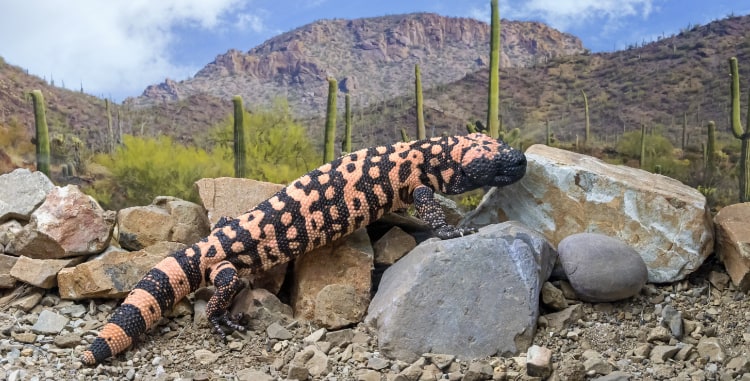
Thanks to a huge TikTok trend, berberine is now promoted as “nature’s Ozempic.” What the heck is berberine and does it really help you lose lots of weight by suppressing appetite the same way Ozempic does? Certified nutritional therapist and ChefV.com founder Veronica Wheat weighs in (no pun intended).
With an infant to care for (no hubby Brandon, I’m not talking about you haha) and a green veggie juice delivery business to run, I don’t have the time—or, the interest—to watch TikTok videos. But after hearing about the berberine trend for weight loss, I couldn’t resist plunging down the rabbit hole.
Here’s just how one of the berberine TikTok videos—which cumulatively have been viewed 100 million times—begins:
“I started taking berberine yesterday and I’m not kidding you, I was stuffed all day.”
Because of testimonials like this, be they fake or real, the fact is that from January to mid-July of 2023, sales of berberine-containing products exploded by nearly 90%. [SOURCE]

Why Are TikTok Influencers Taking Berberine For Weight Loss?
So what’s behind the berberine TikTok trend? Well, in case you haven’t heard about Ozempic, it’s a drug that was approved by the FDA in 2017 only for adults with type 2 diabetes.
Ozempic lowers blood sugar levels by helping the pancreas make more insulin. Besides effectively lowering blood sugar levels, Ozempic users also noticed that their appetites plummeted while on the drug, leading to quick, significant weight loss.
That explains why celebrities and thousands of “regular people” who could afford the steep cost of purchasing Ozempic off-label (in other words, not for type 2 diabetes) began hoarding Ozempic, creating a shortage of the drug for people living with diabetes.
The shortage of Ozempic (generic name: semaglutide), its high cost, and lawsuits over its side effects—in some patients, it causes gastroparesis, a severely painful disorder that causes food to move at a snail’s pace through the stomach to the small intestine—has caused people to look for a natural alternative.
Enter berberine.

What is Berberine?
Like flavonoids, carotenoids, and allicins, berberine is a chemical found in plants, or in other words, a phytochemical. Phytochemicals are natural compounds that plants use to protect themselves from being devoured by insects. Natural plant chemicals can either be toxic to humans or they can have medicinal-like effects. But does berberine really work like Ozempic for weight loss? I’ll get to that in a sec.
First, though, it’s important to know where berberine comes from. When it’s extracted naturally, it comes from the roots or bark of the following plants:
- Goldenseal
- European Barberry
- Oregon grape
- Phellodendron
- Tree turmeric
Most of the berberine supplements that TikTokers use for weight loss probably claim to be extracted naturally. However, I’m not sure that’s true. As this study in Nature points out, researchers have figured out how to make berberine from genetically-modified yeast. (Yuck!) And I bet you that using this GMO yeast will prove more cost-effective than having to import the natural sources of berberine. Anyway, that’s food for thought; if you want to try a berberine supplement, do your research and make sure it’s GMO-free. (But wait until the end of the article to make your decision about whether to purchase a berberine supplement!)

Barberry plant –above By User:MPF – Own work
What Are The Benefits Of Berberine?
Berberine has been a compound in many herbs that have been used for thousands of years in traditional Chinese and Ayurvedic medicine. According to a research article in Chinese Medicine, berberine was first discovered in 1830 and since then it’s been the most studied alkaloid compound. In the early 1960s, Indian researchers demonstrated that berberine helped prevent diarrhea during cholera outbreaks.
Even today, herbs with berberine are kept in medicine cabinets in Chinese homes like Immodium or Pepto Bismol to treat diarrhea.
Having a serious case of the runs is one way to lose weight. But besides diarrhea treatment, what are the other benefits of berberine? And does research support it for weight loss?
Well, according to the Nature study above:
“Berberine has been found with pharmaceutical potential to treat obesity, regulate gut microbiota, treat atherosclerosis, or ameliorate Parkinson’s disease. There have been over 80 clinical trials worldwide to investigate berberine’s medicinal uses in these diseases.”
OK, so wow, 80 studies, that’s impressive. But notice the quote above says “investigate.” In other words, is berberine legit for weight loss or has it been shown to be a dud in research studies?
What Does The Research Say About Berberine?
The problem with berberine is that it’s really difficult to obtain it from food naturally. It’s pretty much found in just those handful of plants above. So does research support taking a supplement with berberine? Personally, I’m always in favor of using real food instead of supplements whenever possible. However, it does seem that berberine is at least minimally effective for managing metabolic disorders by lowering:
- Triglycerides
→ Triglycerides are a type of fat in your blood. Did you know that Chef V’s 21 DAY DETOX and GREEN DRINK PLAN lowered triglycerides by an average of 23% in a clinical trial? (Learn more.) - Cholesterol
Cholesterol is a necessary nutrient. But too much of it can accumulate in the arteries as plaque. The clinical trial on Chef V products reduced participants’ total cholesterol by an average of 9.2%; LDL cholesterol (the so-called “bad” cholesterol) by 10.7%, and cholesterol to LDL ratio by 7.7% (Read more about the study here.)
- Blood Sugar
The HbA1C test (A1C for short) provides a snapshot of blood sugar levels over the last 3 months. The clinical trial showed Chef V products lowered A1C levels by an average of 1.7%, which is huge for someone managing blood sugar levels. (Details here.)
In addition to these benefits of berberine, research also supports it for cardiovascular health. It also has been shown to improve the gut barrier, making sure no nasty pathogens get in, proving that it may work to help combat diarrhea.
–> Check out my “Gut Health Survival Guide.”

Is Berberine Safe To Take?
If something sounds too good to be true, it usually is. In the case of berberine, taking it for weight loss could potentially backfire—if you’re taking diabetes drugs—like Ozempic or Metformin—and blood pressure medications. Berberine could potentially cause blood sugar levels to fall too low in some people or counteract the effects of blood pressure medications. So make sure you talk to your doctor before you start using berberine supplements.
Is Berberine Like Ozempic?
So let’s get to the heart of the matter, or more accurately, the stomach of the matter. Does berberine work for weight loss? And if so, does it work in the same way as Ozempic?
Let’s answer the first question. If you Google “berberine weight loss pubmed” you can quickly see that the results are a mixed-bag. A meta-analysis (a review of several studies) said there was a “significant reduction of body weight and body mass index (BMI)”. Another study also showed good results but it was on rats. Another study showed “mild weight loss” in people with obesity while another study on its effects on obesity “yielded no significant decline in body weight.”
But if a whole nation of TikTokers swear by it, shouldn’t that anecdotal evidence count for something?
I can’t answer that question for you. You’ll have to decide for yourself. There are worse things you can do for your health than taking a berberine supplement. But I’m not convinced that it’s necessary. And more to the point, to answer the second question, berberine is not “Nature’s Ozempic.”
Why Berberine Is Not Like Ozempic
Remember the name semaglutide? That’s the generic name for Ozempic and the more recent drug approved for weight loss, Wegovy, which was created by the same manufacturer of Ozempic in 2021, the first time a weight loss drug was approved by the FDA since 2014. (Weight loss drugs have a bad track record of side effects.)
Semaglutide works by mimicking the role of a natural hormone, called GLP-1 (glucagon-like peptide-1). Here’s why that’s important. GLP-1 tells your body you have eaten. So semaglutide works by tricking your brain into thinking you’ve already eaten.
Berberine does not work this way whatsoever. So no, berberine is not a surrogate for Ozempic. Yes, berberine’s effects on metabolic disorders is promising as a 2022 study in Molecules describes.
And yes, these effects do include lowering blood sugar and improving insulin sensitivity, meaning your pancreas needs to pump out less insulin to manage blood sugar levels. It could be that berberine leads to weight loss because of its effects on controlling insulin and other hormones that control the size of your fat cells.
But that doesn’t mean it works the same way Ozempic does. And to compare berberine to Ozempic is at best false advertising and at worse, potentially dangerous for those who take diabetes medications (see side effects concern above).

Is Berberine Good For Weight Loss? Conclusion
When you eat real nutrient-dense food, the nutrients activate GLP-1. In other words, you don’t need to purchase berberine supplements in order to tell your brain that you are full. As I cautioned in this article I wrote about Ozempic, lots of people who take the drug for weight loss are doing so at the risk of serious malnutrition.
→ Here’s how to eat healthy if you take semaglutide/Wegovy for weight loss; you should only take Ozempic if you have type 2 diabetes.
If you want to lose weight in a safe, effective way that’s backed by research, get on an ORGANIC GREEN DRINK PLAN and maximize your weight loss success with my 21 DAY DETOX.
The 38 people who participated in a clinical trial testing the effects of CHEF V products followed the 21 DAY DETOX and then continued with the GREEN DRINK PLAN for 7 days. Their average weight loss during the 28-day study was roughly 8 pounds. That amount is impressive, considering none of the participants had significant weight to lose.
Whether they would have lost more weight had they also taken a berberine supplement is up for debate. But one thing that’s not for debate is that berberine is nature’s Ozempic. It’s not.
To your health,
Veronica “V” Kress
ChefV.com Founder













